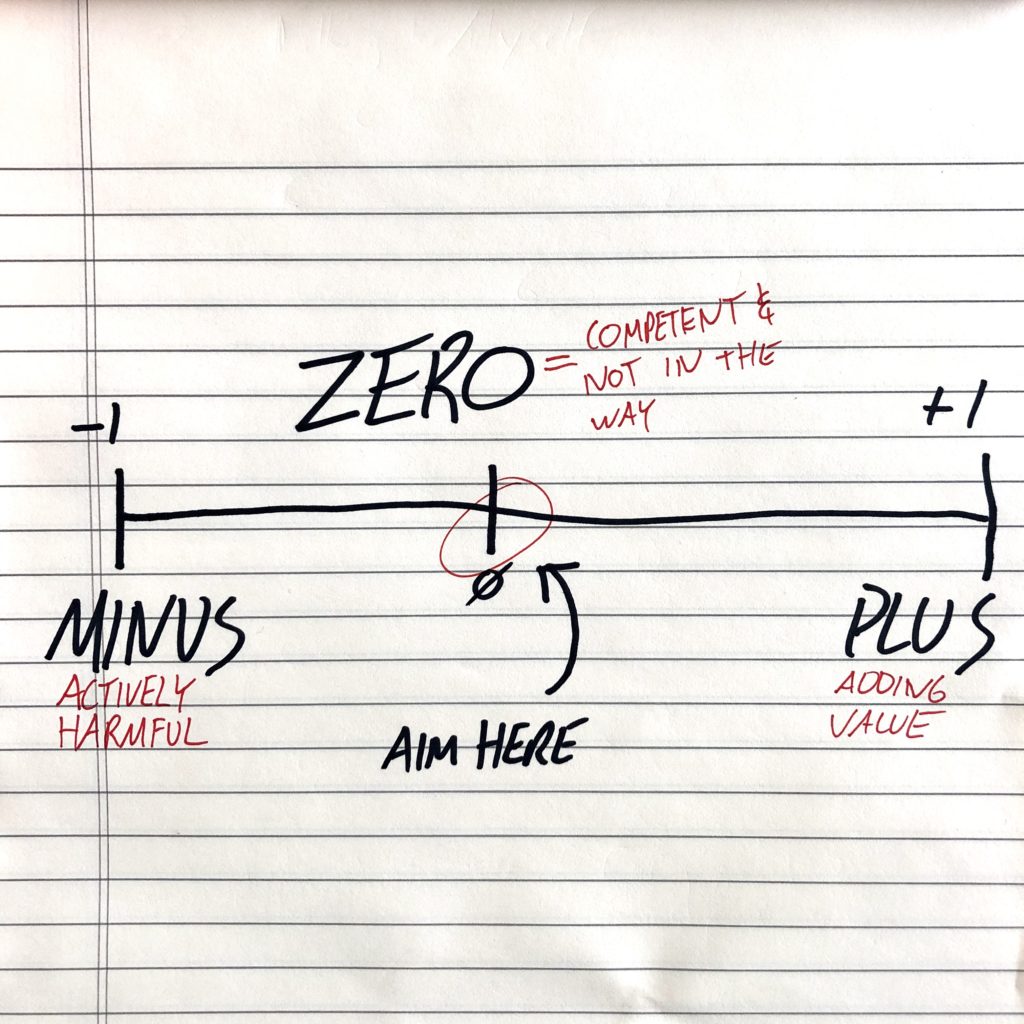Lotta information to process these days. I’ve read more bits of scientific papers in the past few weeks than ever before. Doesn’t mean I know anything, though. I’ve stopped sharing what I think I’ve learned even with people close to me, at least until I hear it from multiple real experts. At least twice now I’ve had to say, “Hey, sorry, turns out that thing I shared yesterday is bullshit.” That’s no good.
I’m reminded of a framework I learned from Chris Hadfield in An Astronaut’s Guide to Life on Earth.

In any new situation, whether it involves an elevator or a rocket ship, you will almost certainly be viewed in one of three ways. As a minus one: actively harmful, someone who creates problems. Or as a zero: your impact is neutral and doesn’t tip the balance one way or the other. Or you’ll be seen as a plus one: someone who actively adds value.
Chris Hadfield
I refer to it as Zero Minus Plus (ZMP), as that seems to roll off the tongue the easiest. You’d think you’d always want to be the plus one, but he goes on to explain that trying to be the plus one, or worse, thinking you’re a plus one when you’re not, tends to make you into a minus.
In this particular new environment we find ourselves in, with a new pandemic sweeping a modern world, I’m aiming to be a zero. My time on Twitter leads me to believe a lot of other folks could benefit from this approach.
When you have some skills but don’t fully understand your environment, there is no way you can be plus one. At best, you can be a zero. But a zero isn’t a bad thing to be. You’re competent enough not to create problems or make more work for everyone else. And you have to be competent, and prove to others that you are, before you can be extraordinary. There are no short-cuts, unfortunately.
Chris Hadfield